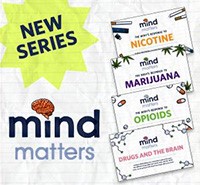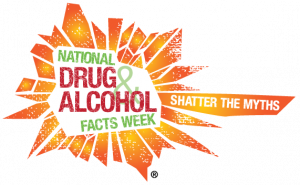Mar
30

Posted by Susan Halpin on March 30th, 2020
Posted in: Blog, Communities of Interest, Patient Engagement, Public Health
Tags: addiction resources, drug and alcohol addiction resources, National Drug and Alcohol Facts Week, NDAFW, substance use disorder, SUD, Teens and Addiction


The first one was ten years ago. Scientists were trying to engage American students in community events so that they would learn what science has taught us about drug use and addiction. The National Institute on Drug Abuse or better known as NIDA was the sole organization involved with this annual event and reached out to just Americans back then. Today, National Drug and Alcohol Facts Week (NDAFW) has grown considerably because it has a many other federal partners such as Substance Abuse and Mental Health Services Administration, the White House Office of National Drug Control Policy, the Office of Safe and Healthy Students in the U.S. Department of Education, and the Drug Enforcement Administration in the U.S. Department of Justice. The collaboration of these partners has brought this important information to teens in countries all over the world.
From Monday, March 30, through Sunday, April 5 students will have the opportunity to engage with scientists and other experts in the field of addiction to dispel myths about drugs and addiction teens may have received from sources that are not always credible like the internet, their friends, movies, music and social media. This week of focused attention on drugs and alcohol will provide information and many free materials to educate young people about how drugs affect the brain, body and behaviors.
NDAFW will be different this year because of our response to COVID-19. In lieu of in-person events and activities, NIDA encourages virtual participation.
The following information about the virtual events and resources is taken directly from the https://teens.drugabuse.gov/national-drug-alcohol-facts-week webpage. Use the links to participate in the countless activities that teens, parents, caregivers, and teachers can do that don’t involve leaving the house.
Here’s a list of our favorite activities:
Sharing the facts on social media. Tweet, snap, or post. Social media platforms can be powerful tools to SHATTER THE MYTHS® about drugs and alcohol. Use the new “Not everyone’s doing it” social media cards and hand-held placards.
Taking advantage of the free, science-based resources to use in classrooms and communities, or at home. These include toolkits and activity ideas on various topics; science- and standards-based classroom lessons and multimedia activities on teens and drugs; and the recently updated Mind Matters series, which helps teachers explain to students the effects of various drugs on the brain and body.